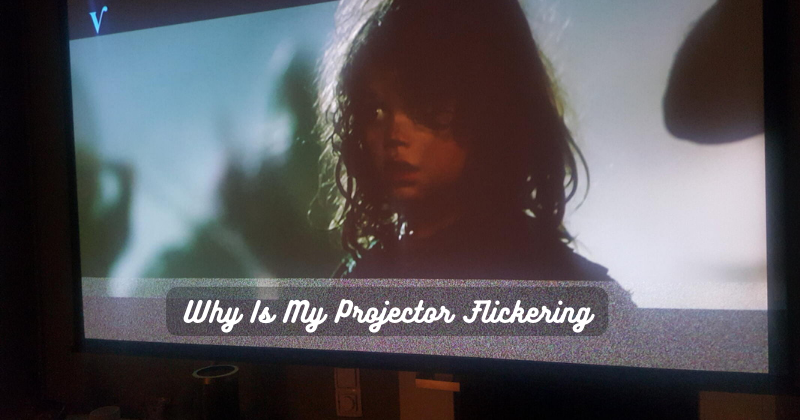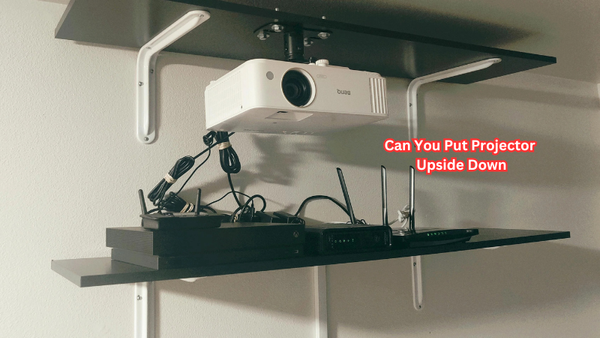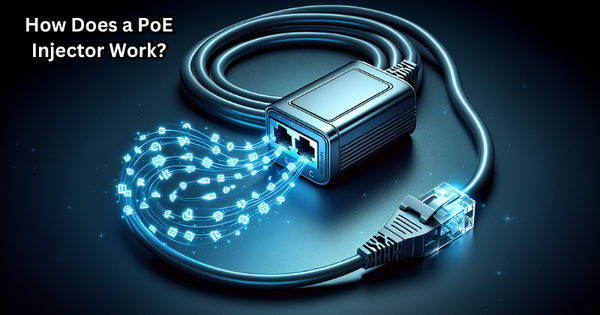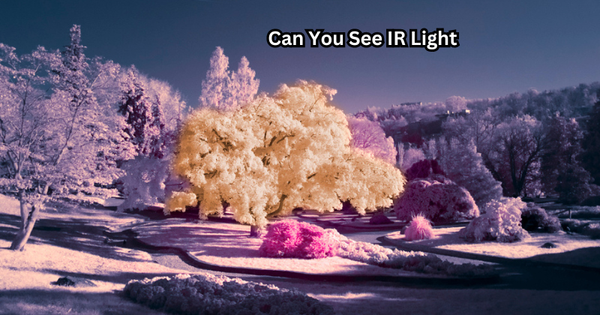Do you need help with your projector flickering during presentations or movie nights? You're not alone.
Flickering is a common issue that many projector owners face, but understanding the cause can help you find a solution. Several factors can contribute to flickering, such as a faulty or aging bulb. Over time, the lamp's brightness may decrease, causing flickering. Another possible culprit is a loose or damaged connection between the projector and the video source.
Insufficient power supply or incorrect settings on the projector can also lead to flickering. To address this annoying problem, it's essential to troubleshoot and identify the root cause. In this article, we'll explore the potential reasons behind projector flickering and provide practical tips to help you resolve the issue for a seamless viewing experience.
Why Is My Projector Flickering: Common Causes and Solutions
Let's discuss the causes of projector flickering and explore potential solutions to address the issue.
Faulty or Aging Bulb
If your projector bulb has been in use for a long time, it may be reaching the end of its lifespan. As the lamp ages, its brightness can decrease, leading to flickering. Replacing the bulb will likely solve the problem. To determine if this is the cause of your projector flickering, check the bulb's hours of usage in the projector's menu settings. Most projector bulbs have a lifespan of 2,000 to 3,000 hours, so if your bulb has reached this point, it's time for a replacement. Projector bulb flickering can also occur if the bulb is not installed correctly. Lamp power mode settings can also affect flickering, so ensure that the projector lamp is set to standard or eco mode for optimal performance.
If your preferred bulb mode is set to "Eco," the lamp's lifespan can be extended, but its brightness will also decrease. Switching to a brighter mode may alleviate the flickering issue. Arc wander is another common issue with projector bulbs, causing flickering. Arc strikes begins to occur when the bulb is in its final stage of life, and replacing it with a new one should solve the issue.
Loose or Damaged Connection
A loose or damaged connection between your projector and video source can also cause flickering. This can happen if the cables are not securely connected or if they have been damaged over time. To troubleshoot this issue, try using a different line or securing the existing one properly. Projected screen flickers can also occur if the video source is not compatible with the projector. In this case, you may need to adjust the settings on both devices or use a different video source.
Eco Mode or Incorrect Settings
Projectors usually have different preset modes, such as "Cinema" or "Presentation," to optimize image quality for specific viewing purposes. If you're experiencing flickering, check if the projector's mode is set correctly. Some projectors also have an "Eco" mode that reduces power consumption and extends the lamp's lifespan but can result in a darker and flickering image. Switching to a brighter mode may solve the issue.
It's also essential to check other settings on your projector, such as the refresh rate, resolution, and aspect ratio. Ensure that they are set correctly according to your video source's capabilities.
Electrical surges or Interference
Electrical surges in your power supply can cause flickering and other issues with your projector. To avoid this, plug your projector into a surge protector to regulate the power supply. Interference from nearby electronic devices can also cause flickering. Try moving these devices away from your projector or using shielded cables. Poor power supply filtering can also cause flickering, so consider using a power conditioner to regulate the electricity.
Flickering issues can also arise due to overheating, so ensure that your projector has enough ventilation and is not placed near heat sources. Overheating can also damage the projector and its components, so it's crucial to address this issue.
Refresh Rate Mismatch
Mismatched refresh rates between the projector and video source can result in flickering. Most projectors have a 60Hz refresh rate, so make sure your video source's refresh rate matches this setting. You may also need to adjust the settings on your computer or other devices to match the projector's refresh rate.
High power mode settings on your video source can also cause flickering, so try switching to a lower power mode. Additionally, make sure your video source is not set to a resolution that is higher than what the projector can handle. Video signal source may also be the issue, so try connecting to a different device.
Components Have Broken Down
If none of the above solutions work, some internal components of your projector may have broken down or malfunctioned. In this case, it's best to consult a professional for repair or consider replacing your projector if it's beyond repair. Flickering can also be a sign of other underlying issues with your device, so it's essential to address the problem promptly.
Ground Loops
Ground loops, also known as hum bars, can cause flickering and other visual disturbances on your projected image. This occurs when there is a difference in voltage between the electrical grounds of different components connected to the projector.
To solve this issue, try using an isolation transformer or ground loop isolator. Light output fluctuations due to voltage changes can also cause flickering and using a voltage regulator can help stabilize the power supply.
Color Wheel Issues
Some projectors use a color wheel to produce colors on the projected image. If you notice flickering along with changes in the color intensity or hue, it's likely an issue with the color wheel. This can happen due to a malfunctioning motor, bearings, or dust buildup. In this case, it's best to consult a professional for repair or replacement. If you using the projector for a few hours a day, please clean the color wheels once in six months to avoid dust buildup because projected screen flickering can also happen due to the color wheel malfunction.
With these potential causes and solutions in mind, you can troubleshoot and resolve any flickering issues with your projector. Remember always to consult the user manual for your specific device and seek professional help if necessary. Don't let flickering ruin your viewing experience – take action and enjoy a seamless projection every time.
Additional Tips for a Flicker-Free Viewing Experience
Here are some additional tips to help you maintain a flicker-free experience with your projector:
- Ensure Proper Ventilation
Projectors generate a significant amount of heat and require proper ventilation to function correctly. Make sure to place your projector in a well-ventilated area, away from any obstructions that can block airflow. Overheating can cause flickering or even damage the projector.
- Clean the Air Filter
A dirty air filter can also contribute to flickering by obstructing airflow and causing the projector to overheat. Regularly clean or replace the air filter according to the manufacturer's recommendations for optimal performance.
- Consider an Upgrade
If your projector is old and constantly flickers despite trying different solutions, it may be time for an upgrade. Newer models have better technology and features that can provide a more stable and enjoyable viewing experience.
- Use High-Quality Cables
Using cheap or damaged cables can cause flickering and other issues. Invest in high-quality, shielded cables for a stable and reliable connection between your projector and video source. HDMI cable is usually the best choice for projectors.
- Update Firmware/Software
Make sure to check for firmware or software updates for your projector regularly. These updates may include bug fixes or performance improvements that can solve flickering issues.
- Avoid Direct Sunlight
Direct sunlight can interfere with the projected image and cause flickering or washed-out colors. If possible, use your projector in a dimly lit room or adjust the blinds to minimize direct sunlight.
By following these tips and solutions, you can enjoy a flicker-free viewing experience with your projector. Remember always to take care of your device and consult professionals if necessary for any technical issues.
FAQs
Why is my light projector flashing?
-There could be various reasons for this, such as electrical surges, refresh rate mismatch, component breakdown, ground loops, or color wheel issues. Refer to the troubleshooting section and try the suggested solutions.
Why is my projector image shaking?
This can be caused by interference from nearby electronic devices, overheating, or ground loops. Furthermore, if your projector is not securely mounted or placed on an unstable surface, it can also cause shaking. Ensure proper ventilation and secure placement for a stable image.
How do I stop my HDMI from flickering?
Try checking the HDMI cable for any damages, or use a high-quality, shielded cable. Adjust the refresh rate or use a voltage regulator to stabilize power fluctuations. So, ensure your video source's refresh rate matches the projector's settings.
How do I know if my projector lens is bad?
If you notice distorted or blurry images, it could indicate a problem with the projector lens. Try cleaning the lens and adjusting focus before considering any internal component issues. If the issue persists, consult a professional for further inspection and repair, if necessary.
Why is my projector flickering black?
A flickering black screen can be due to various reasons, such as loose connections, dust buildup, or malfunctioning components. Proper maintenance and timely repairs can prevent flickering issues with your projector and ensure a seamless viewing experience.
Conclusion
In conclusion, if you're experiencing flickering issues with your projector, it's crucial to identify the root cause and find a solution that works for you. Flickering can be caused by various factors, such as incompatible refresh rates, faulty cables, or power supply problems. It is recommended to begin troubleshooting by checking the connections and ensuring that all cables are securely connected. Adjusting the refresh rate settings on your projector or video source helps alleviate flickering.
Additionally, if the issue persists, it could indicate a problem with the projector's internal components or lamp. In such cases, seeking professional assistance or contacting the manufacturer for support would be beneficial. Remember, regular maintenance, including cleaning the lens and filters, can also prevent flickering and extend the lifespan of your projector. By identifying and addressing the underlying causes, you can enjoy uninterrupted viewing experiences and make the most out of your projector investment.





